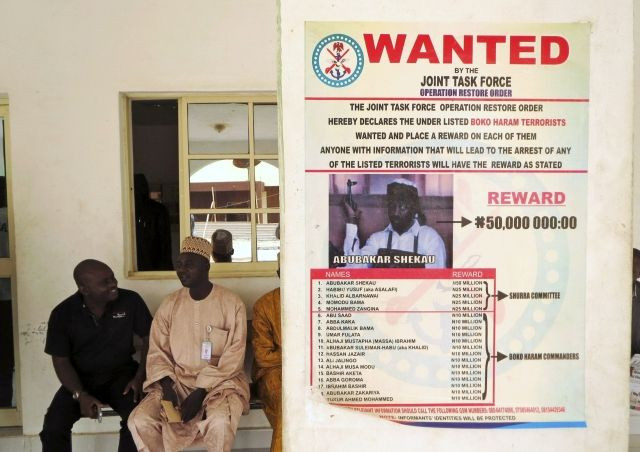Nigerian Forces Launch Offensive Against Boko Haram Militants In Northeast; Mobile Networks Unavailable

Nigerian armed forces have launched raids against Islamist militants in the northeast, officials said on Thursday, hours after President Goodluck Jonathan declared a state of emergency.
The latest offensive against the insurgents has resulted in the killing of at least 21 people, the Associated Press reported on Friday from Maiduguri, the capital of Borno state, quoting a security official.
Mobile phone services, which had been cut off since early Thursday on all of the country’s major mobile phone carriers, supposedly to stop militants from receiving warnings or intelligence ahead of military raids, returned Friday morning to some parts in the country's northeast, according to the AP.
However, there is no official confirmation that the unavailability of mobile phone networks was related to the current military offensive.
Mobile phones are the only real communication device in Nigeria for voice calls and to access the Internet, since the collapse of a state-run telephone company, reports say. In the past, militants have attacked mobile phone masts in the northeast in an effort to disrupt communications, according to the BBC.
On Tuesday, the president ordered more troops to be deployed in the three northeastern states of Adamawa, Borno and Yobe, where a state of emergency has been imposed, and warned that any building suspected of housing militants would be taken over.
“The operations, which will involve massive deployment of men and resources, are aimed at asserting the nation's territorial integrity,” a Defense Headquarters statement said, as reported by Reuters.
Low-flying Nigerian fighter jets and army trucks were reported in Yola, the capital of Adamawa state. However, soldiers have met “no resistance” yet from extremists who have taken over villages and small towns in the region closer to the Sahara Desert, a military spokesman told the AP.
It was reported earlier this week that Boko Haram leader Abubakar Shekau announced his group is kidnapping women and children as part of its guerrilla warfare against the country’s government, which has been routinely imprisoning the wives and children of extremists.
“If they do not leave our wives and children, we will not leave,” Shekau said, speaking in the Hausa language in a video released on Monday, adding that anyone taken by the group could begin a new life as a “servant,” without going into detail.
The video showed 12 children, both boys and girls, but it did not identify them, the AP reported.
Police and security forces have not announced any kidnapping cases involving Nigerians after recent Boko Haram attacks.
Thousands of people have died in Nigeria over the past few years in communal strife fueled by Boko Haram, a militant Islamist group with reported ties to Al-Qaida. The imposition of Islamic law in several northern states by Islamists has caused thousands to flee the region.
Separatist aspirations have also been on the rise in Africa’s most populous nation, a reminder of the Biafran conflict in the late-1960s, during which more than one million people died, mostly from poverty and disease.
© Copyright IBTimes 2025. All rights reserved.





















